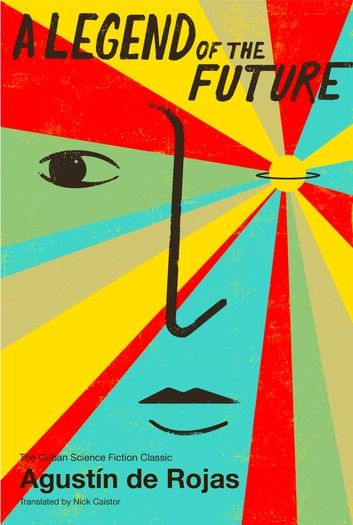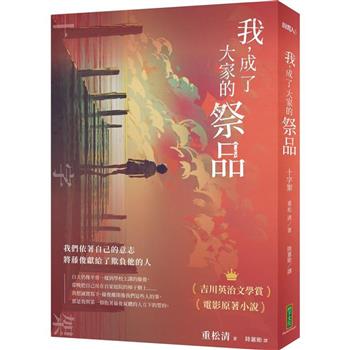| FindBook |
有 1 項符合
A Legend of the Future的圖書 |
 |
A Legend of the Future 作者:Agustín de Rojas / 譯者:Nick Caistor 出版社:Restless Books 出版日期:2015-06-23 語言:英文 |
| 圖書館借閱 |
| 國家圖書館 | 全國圖書書目資訊網 | 國立公共資訊圖書館 | 電子書服務平台 | MetaCat 跨館整合查詢 |
| 臺北市立圖書館 | 新北市立圖書館 | 基隆市公共圖書館 | 桃園市立圖書館 | 新竹縣公共圖書館 |
| 苗栗縣立圖書館 | 臺中市立圖書館 | 彰化縣公共圖書館 | 南投縣文化局 | 雲林縣公共圖書館 |
| 嘉義縣圖書館 | 臺南市立圖書館 | 高雄市立圖書館 | 屏東縣公共圖書館 | 宜蘭縣公共圖書館 |
| 花蓮縣文化局 | 臺東縣文化處 |
|
|
Description
A canonical, riveting work from the patron saint of Cuban science fiction that is reminiscent of Arthur C. Clarke’s 2001: A Space Odysseyand now available to an English readership for the first time.
A morally profound chamber piece, Agustín de Rojas’ A Legend of the Future takes place inside a damaged spaceship following the failure of a mission to Titan, one of Saturn’s moons. The journey back to Earth forces the crew members to face their innermost fears. This mesmerizing novel is a science fiction roman à clef about the intense pressures—economic, ideological, psychological—inside Communist Cuba.
Reviews
"The best science fiction writer in Cuba; the only possible debate is which of his works is the best…. His trilogy of Spiral, A Legend of the Future, and Year 200 is still the best of Cuban science fiction…. With a very refined style and well-established scientific-social background, Agustín’s work surprises through its humanistic content. His concerns surrounding the meaning of life and the evolution of human beings put him in a privileged place among national writers.”
—Cuenta Regresiva
"The best and most popular novelist of this genre that the Island has ever given…. He is considered one of the principal exponents of Cuban science fiction, and he was undoubtedly the one who knew how to best combine solid scientific formation as plots and attractive characters with a confidence well-based in humanity’s socialist future.”
—Yoss
"One of the best science fiction writers in Cuba—and, until [his death], one of the best Cuban story tellers alive…. Today Agustín de Rojas’ work, from Spiral through Catharsis and Society, is admired by cult readers, pro-government thinkers, and elitists alike."
—Félix Luis Viera, Cubaencuentro
"The most elevated figure in Cuban science fiction."
—Axxón
“Finally, we have the chance to read a landmark work from one of Cuba’s greatest science fiction writers…. Steady build-up of suspense, believable depiction of characters under intense stress, unique take on human space exploration…. If you like intensely psychological sci-fi that deftly piles on the suspense, this novel’s for you…. Agustín de Rojas authored a trilogy that pushes the boundaries of our imaginations…. You’ll want to prepare yourself for Legend. It’s been compared to Clarke’s 2001, and like that remarkable text, de Rojas’s will blow your mind in a good way…. The boundaries between dream and reality, and then between human and machine, almost melt away as the story progresses. And it is de Rojas’s skillful manipulation of those boundaries that makes Legend so addictive.”
—SF Signal, 4.5-star review
About the Author
Agustín de Rojas (1949-2011) is the patron saint of Cuban science fiction. A professor of the history of theater at the Escuela de Instructores de Arte in Villa Clara, he authored a canonical trilogy of novels consisting of Espiral (Spiral, 1982), for which he was awarded the David Prize; Una leyenda del futuro (A Legend of the Future, 1985); and El año 200 (The Year 200, 1990), all of which are scheduled for publication in English translation by Restless Books. While he was heavily influenced by Ray Bradbury and translated Isaac Asimov into Spanish, de Rojas aligned himself mostly with Soviet writers such as Ivan Yefremov and the brothers Arkady and Boris Strugatsky . After the fall of the Soviet Union, de Rojas stopped writing science fiction. He spent his final years persuaded—and persuading others—that Fidel Castro did not exist.
About the Translator
Nick Caistor is a British journalist, non-fiction author, and translator of Spanish and Portuguese literature. He has translated Cesar Aira, Paulo Coelho, Eduardo Mendoza, Juan Marsé, and Manuel Vázquez Montalban, and he has twice won the Valle-Inclán Prize for translation. He regularly contributes to Radio 4, the BBC World Service, theTimes Literary Supplement, and the Guardian. He lives in Norwich, England.
|











